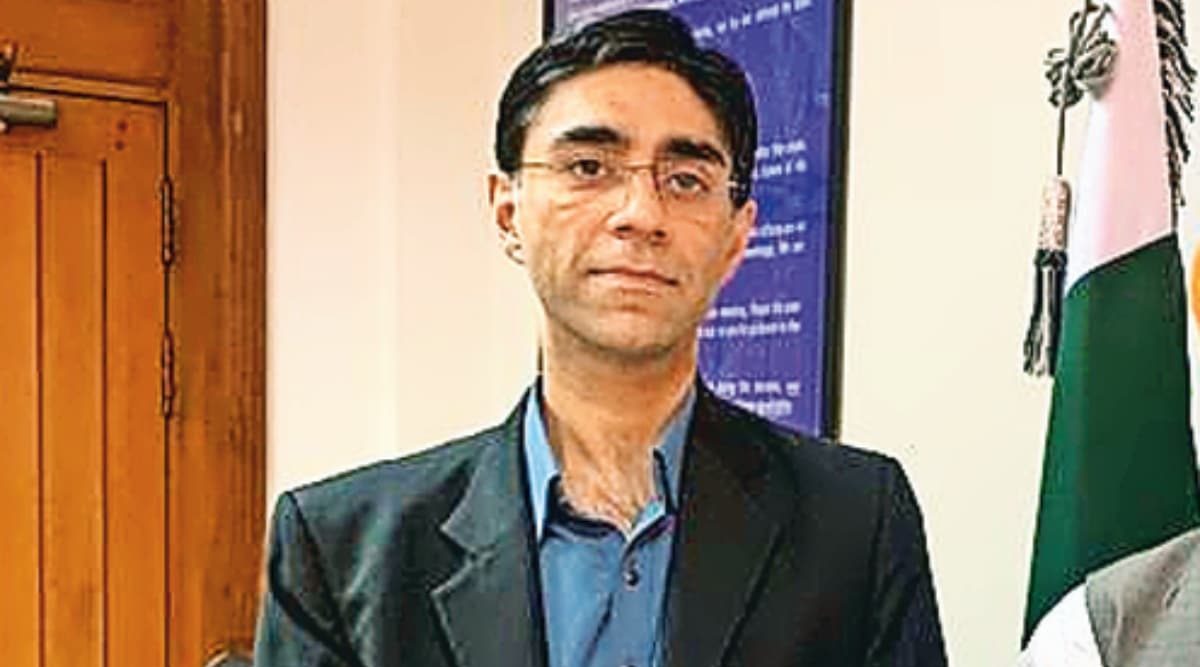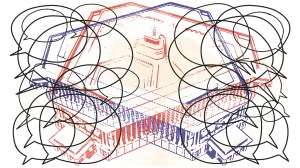We do want to move forward, enabling environment has to come from India: Pakistan National Security Advisor
'Pakistan wants to be at peace with India. But the sad reality is that India is now in a situation where the prevailing ideology of the Indian government, if I may say so, has blocked all avenues, because the conversation with us is not rational.'
 Moeed Yusuf, Pakistan National Security Advisor
Moeed Yusuf, Pakistan National Security AdvisorDays after Pakistan released its first National Security Policy centred on connectivity and “geoeconomics”, Moeed Yusuf, the country’s National Security Adviser, in an interview to The Indian Express, talks about what he calls the stumbling blocks in ties with India, the change in Kashmir and the opportunities Afghanistan provides.
The Pakistan National Security Policy talks about “a regressive and dangerous ideology” in the neighbourhood that increases the prospect of violent conflict. You are speaking of India, but don’t you see the instability coming out of Afghanistan as a national security issue for Pakistan?
The question is too black and white… NSP, or any NSP document, is basically a statement of intent… You are talking about what happened in my neighbourhood two months before the NSP was put out. The NSP is a years-long process, talking about where Pakistan wants to go, how it sees the overall context, not today, not yesterday… India, unfortunately, remains the real threat to Pakistan. More so now, given the direction that India has, or the Indian government at least has, chosen for itself… But we are also seeing Afghanistan as a major opportunity if things stabilise, so that connectivity to Central Asia, which is fundamental to achieve our economic vision, takes off.
Although you say in the NSP you want to resolve all outstanding issues with India through dialogue, what is the conclusion: that Pakistan cannot be at peace with India?
Pakistan wants to be at peace with India. But the sad reality is that India is now in a situation where the prevailing ideology of the Indian government, if I may say so, has blocked all avenues, because the conversation with us is not rational. It is about whether Pakistan deserves to or should be existing. We have said again and again that the ball is in India’s court. We do want to move forward, but the enabling environment has to come from India.
How do you then explain the backchannel process that led to the ceasefire?
Personally, I have come out of it, realising that it was basically just a tactic to release the pressure that India was facing on Kashmir from the Western world… when you talk, you want to see if the other side realises that ultimately we have to move forward, both have to sit down and find the middle. And frankly, I don’t pick that up. If there is, then India should come forward and tell us how it’s willing to do it.
The NSP is full of the new realities of the changing world order, how you have to adjust yourself to it. So this is the new reality of India, and perhaps Pakistan has to come to terms with it, and do business. Haven’t you foreclosed your options by calling it negative, regressive, and so on?
Nobody is saying that we have foreclosed any options of engagement. Who said that? We have just invited India to the SAARC summit. India is the one that said we don’t want to show up. So if we had foreclosed all options for engagement, we won’t be saying that.
The NSP is espousing very clear confidence that (Pakistan) wants to move forward on a geo-economic platform, connectivity, development partnerships. And if our eastern flank is closed, we are not going to wait. CPEC is going to go from strength to strength, we are going to focus more on our western border, and open up to Central Asia and Eurasia… When it’s the right time, hopefully, we will open up the east if India plays ball in a way that’s sensible.
Why do you say the eastern flank is closed? You are the one that closed it. When you talk of openings, can you see Pakistan resuming trade with India without making it conditional to demands on Kashmir?
Because you want to move to open up a relationship and connectivity and hope that we can move forward does not mean that you basically give up on your cardinal national interests. These two things are not mutually exclusive in any way. You have to look at things from a country’s perspective on what is required for a country to move forward. Kashmir remains an integral issue to Pakistan.
Before August 5, 2019, Pakistan did not really attach any significance to Article 370. Why are you now attaching so much importance to its return?
Of course, Article 370, 35 A are part of the Indian Constitution, provisions or articles that we don’t accept… But the point is (Kashmir) has a separate character… There has been a qualitative change. And that qualitative change has to be reversed before we move forward. It’s as simple as that.
Newsletter | Click to get the day’s best explainers in your inbox
India has been asking for a land route to Afghanistan through Pakistan to reach humanitarian supplies. This doesn’t seem to have happened. Why?
50,000 metric tonnes of wheat India wanted to supply after 15th of August. Pakistan formally approved, our Cabinet approved, we announced. But not one grain of wheat has crossed Pakistan because I actually think that was a publicity stunt, because India thought Pakistan would refuse… So please be our guest, send whatever you want. We are ready to ship it across.
So all you are doing is waiting for India to send this consignment across. That’s what it is?
Specifically, the 50,000 metric tonnes of wheat that India asked for… Note verbales have been exchanged. Whenever India wants to send that wheat, we are waiting. And it’s not for anything else, it’s only for wheat.
The NSP mentions the ceasefire in passing but doesn’t give it much importance. There was expectation that it could lead to a wider peace process, but it didn’t. Is the backchannel still alive?
I won’t comment on backchannel or no backchannel. But on the ceasefire, let me just say that actually, Pakistan agreed to it because lives were being lost. And the strategic construct beyond that, frankly, was made up by the media. But we agreed to it, we are sticking to it.
Chinese actions against India in Ladakh have created a lot of instability. And the NSP is quiet on this. So where does Pakistan see itself if there is a military conflict?
I have always been amused by India’s paranoia about Pakistan, you know, doing something if there is a conflict with China. I think it’s a figment of India’s imagination. We will do what we need to do to protect our interests. What we have said is, we want peace all around. When this crisis was going on, did we create a situation? Did we do something to undermine India?… Yes, China is our closest strategic partner, there’s no question about it… And yes, I mean, if India is going to create a problem for Pakistan, we will respond the way a self-respecting nation does. The Indian Army chief is on record, saying Pakistan did not create tensions during your India-China thing.
What is Pakistan’s position on the Quad?
Any structures that come up that would intensify this growing great power competition and contestation in our region doesn’t suit Pakistan… I think we now need to find congruence to come together on economic platforms, offer economic bases to each other.
Do you think there are lessons from Sri Lanka’s economic failure on excessive reliance on China? We saw protests in Gwadar. Is Pakistan looking at Sri Lanka?
The Gwadar protest had nothing to do with what you are suggesting. There were internal domestic issues of provision of electricity and gas, which people are protesting against, it is not an issue related to China. As far as reliance on China is concerned, Chinese debt is a small fraction of Pakistan’s overall debt. We have absolutely no concerns, and China’s relationship with Pakistan is so different, so unique that even drawing this parallel is very odd.







